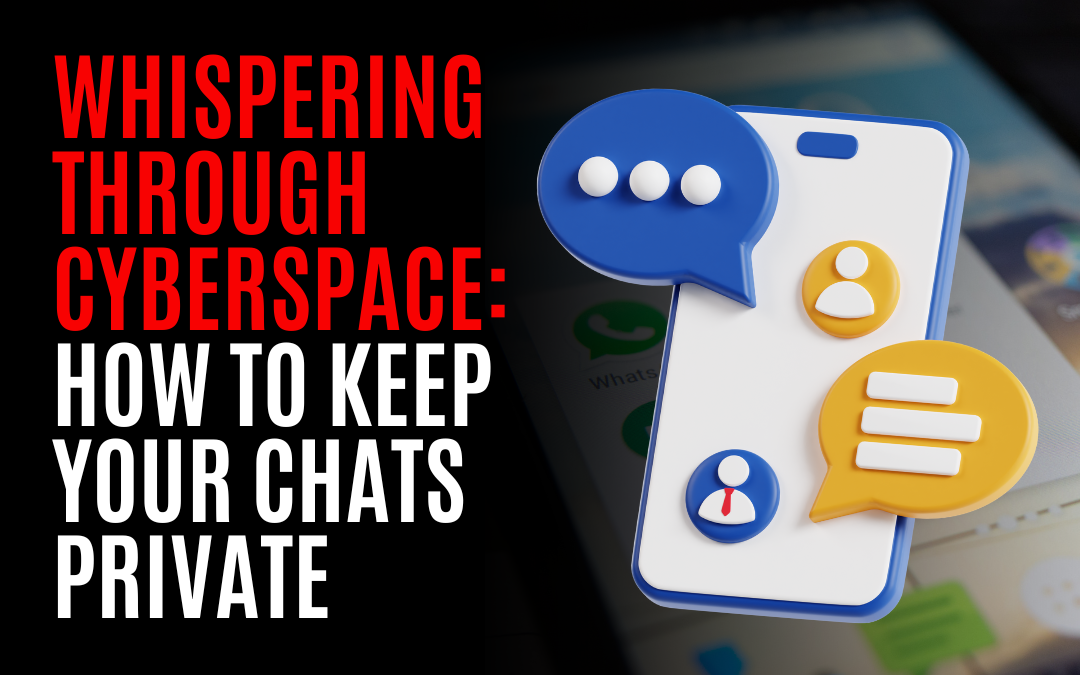Imagine chatting with your friend in your favorite coffee shop. You’d expect that conversation to stay between you two, right? But there may be someone listening in. None of their business, right?
Now, think about your digital conversations. Not only are most of them not private, most of your online conversations are recorded, analyzed, and your information sold to others. Something we don’t think much about.
Let’s talk about how I keep my conversations private and secure, and how you can too.
Understanding End-to-End Encryption
End-to-end encryption is like having a secret language between you and your friend. Only you two understand it, even if someone else overhears. When you send a message with end-to-end encryption, it gets scrambled into a code that only the person you’re sending it to can decode. It’s vital for keeping your chats private.
Apps like WhatsApp and Signal are my go-to because they encrypt messages by default. Remember, not all services have this default setting. For example, Facebook Messenger requires you to opt-in by starting a “Secret Conversation” and since its owned by Meta I’m not sure just how secure it really is. Always double-check your app settings!
Why This Matters
You might wonder why all this encryption talk is crucial. Well, without it, anyone from hackers to curious tech companies are likely to sneak a peek into your private conversations. And for business people, the stakes are even higher. A simple chat might contain sensitive data that needs protection.
Choosing the Right Apps
Here are some apps I trust:
- Signal: The gold standard in secure messaging. Loved by cybersecurity pros for its airtight privacy.
- WhatsApp: A great choice for end-to-end encryption by default. It means everything you send is locked up tight, only to be seen by you and your recipient.
- iMessage: Perfect for chats between Apple devices. Just look for those blue text bubbles; they signal your message is encrypted.
Remember: Text messages, technically known as SMS, (texts in green bubbles) aren’t encrypted, which isn’t ideal for sensitive info.
But, Wait! There’s More!
Even with end-to-end encryption, your security depends on keeping your device safe too. Think of it this way: having the most secure deadbolt won’t help if your windows are left wide open. Similarly, if your phone or computer is compromised, encryption can’t protect your messages.
That’s why I always recommend using a secure method for 2FA or MFA verification. Instead of receiving a text message (SMS), use a more secure option like https://duo.com. This adds an extra layer of security, ensuring that even if someone guesses your password, they can’t get into your account without this second verification.
So, What’s Next?
Quantum computing is the biggest threat against encryption. This new computer technology is threatening all forms of encryption, and work is underway to develop new encryption technologies that are quantum-decryption-proof. But, for now…
- Choose your messaging apps wisely: Stick to those that offer end-to-end encryption by default.
- Keep your devices secure: Regular updates, secure passwords, and cautiousness against phishing attacks are your best defense.
- Educate yourself and your team: Awareness is key. Make sure everyone knows the basics of digital security, especially if they’re handling sensitive information.
Remember, technology evolves, and so do the methods to breach it. Keeping up with the latest in encryption and digital security is not just recommended; it’s essential. Together, using these effective approaches, we can safeguard our digital conversations, ensuring they remain as private as that chat in your favorite coffee shop. Stay secure, stay vigilant, and let’s keep those digital doors locked tight.


